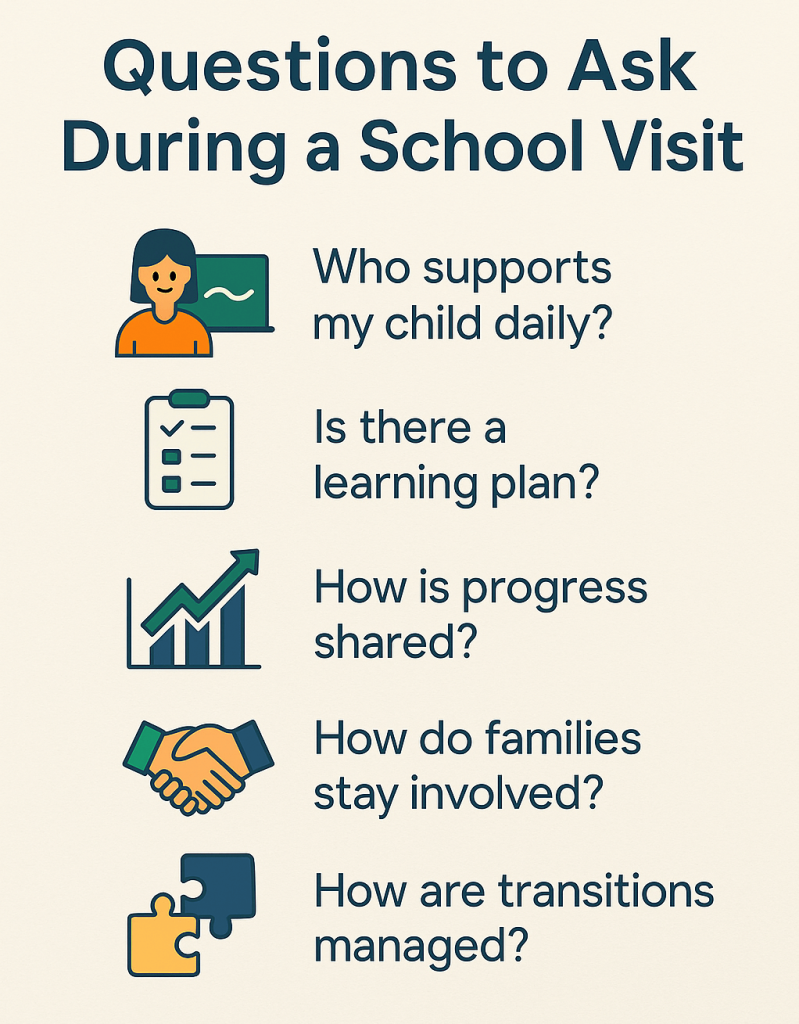Finding the right international school for your child is never a simple task. When your child has additional learning, emotional, or developmental needs, it becomes a decision that touches every part of family life. You want a school that not only understands your child’s profile but one that actively supports their progress and wellbeing through thoughtful, consistent care.
Our guide here offers practical advice for families navigating this process. We’ll walk through what to look for, what to ask, and how to assess whether a school’s approach to inclusion truly meets your expectations. With the right information, you can feel more confident in choosing a learning environment where your child feels seen, supported, and ready to thrive.
Understand Your Child’s Specific Needs
Identify Strengths and Challenges
Every child has a unique profile, and understanding that profile is the first step in choosing a school that fits. Consider your child’s cognitive, emotional, and social development, along with any formal diagnoses or observed learning differences. Whether they require support with reading, focus, sensory regulation, or social interactions, mapping out these areas will help you assess school fit more accurately.
Consider the Type of Support Needed
Support can range from simple classroom accommodations to daily assistance from a learning support teacher or therapist. Ask yourself what kind of structure has helped your child thrive in the past. Do they need regular speech therapy? Visual timetables? Small group instruction? Having clarity around your child’s needs will make it easier to evaluate if a school has the right staff, programmes, and flexibility to support them.
Know What International Schools Can Offer
Types of Support Services
Many international schools now include learning support departments that offer tailored assistance for students with diverse learning profiles. This might include in-class aides, pull-out sessions for literacy or numeracy, counselling, or access to occupational and speech therapy. Some schools may also implement Individualised Education Plans (IEPs) or equivalent documents to track goals and accommodations.

Inclusion Philosophy and School Culture
It’s important to look beyond the services list and explore the school’s overall mindset. Does the school actively promote inclusion? Are teachers trained in differentiated instruction? A school that truly values neurodiversity will reflect that in its policies, communications, and daily classroom practices. Look for signs that students of all abilities are welcomed and included, not just accommodated.
What to Look for When Researching Schools
Clarity on Support Provision
A school that is confident in its ability to support students with special needs will be transparent about what it offers. Look for clear information on the website about learning support services, team qualifications, and how the school accommodates diverse learners. If this information is missing or vague, it’s worth asking for specifics early on.
Staffing and Resources
Ask whether the school has a dedicated SEN coordinator or learning support specialist on staff. Find out how many students they serve and how support is delivered. Are there teaching assistants in classrooms? How often do students receive targeted support? Schools with strong inclusion programmes are usually proud to share these details.
Facilities and Accessibility
Beyond staffing, check whether the physical environment is suitable. This includes accessible classrooms, quiet spaces for sensory breaks, and tools like assistive technology. Even small details, such as visual signage or lift access, can make a big difference in creating a safe and inclusive space for your child.
Questions to Ask During a School Visit
Understanding Day-to-Day Support
Ask how support is delivered throughout the school day. Is it integrated into the classroom, or provided in separate sessions? Who monitors progress? Understanding how your child’s needs will be met in real time, during lessons, transitions, break times, can offer reassurance that the school’s support is consistent and well-organised.
Communication and Collaboration
Strong schools work in partnership with families. Ask how often teachers or support staff meet with parents, whether individual learning plans are reviewed regularly, and how the school incorporates input from external therapists or specialists. Ongoing, open communication is key to ensuring your child’s needs continue to be understood as they grow.

Additional Considerations for International Families
Language of Instruction and Learning Load
For multilingual children or those transitioning to English as a new language, consider how the school supports language acquisition without overwhelming them. Ask if there’s English as an Additional Language (EAL) support and how it works alongside learning support, especially for students with processing or communication needs.
Transitions and Mobility
If your family relocates often, ask how portable the school’s learning plans are. Will documentation transfer easily to your next destination? Do teachers prepare students for transition? Continuity in support is key when changing schools or education systems.
Cultural Attitudes Toward Inclusion
Finally, consider how inclusion is understood not only by the school, but within the wider community. Do teachers, leadership, and parents embrace diversity in learning styles? A supportive culture can make all the difference in how welcomed and accepted your child feels day to day.
Bringing It All Together
Make a Shortlist and Visit More Than Once
Once you’ve identified schools with strong support systems and inclusive cultures, narrow down your list and plan for more than just a single visit. Observing the school across different times or events, such as open houses, parent workshops, or classroom tours, can give a fuller picture of the learning environment and how staff interact with students of all abilities.
Trust Your Instincts and Ask for Honest Feedback
Data and policies matter, but so does the tone of the conversation. If school staff are open, empathetic, and proactive in offering solutions, that’s a positive sign. Ask to speak with other parents of children with similar needs, if possible. Hearing real experiences can help you assess whether a school truly walks the talk when it comes to inclusive education.
Every Step Counts
Choosing the right international school for a child with special needs takes time, research, and trust in your instincts. By asking the right questions and prioritising support, you’re already on the right track.
For curated resources, inclusive school options, and expert guidance, visit AISL Mall.










